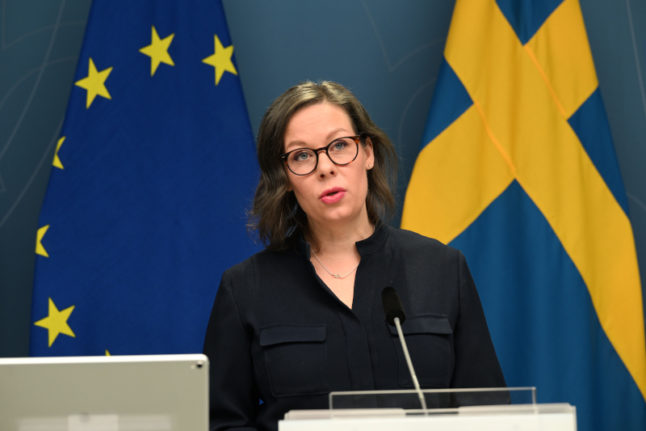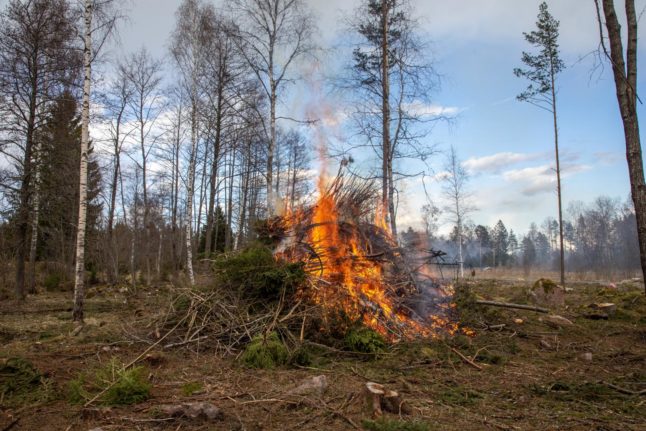Did Sweden do enough to help Brits stay after Brexit?
That’s what many might be asking themselves right now. As The Local recently reported, Sweden is responsible for half of the deportation orders that have been handed to Brits in the entire EU post-Brexit – stats we’re still trying to get to the bottom of.
The individual stories are now starting to emerge.
The Local’s deputy editor, Becky Waterton, last week interviewed Gregory, a British man who was forced to move back to the UK after Sweden rejected his application for post-Brexit residence status – despite his 21 years of living in the Nordic country.
“Everyone says Sweden is this lovely country. It’s not. It’s one of the cruellest countries I’ve ever known,” he told us about how his mental health has suffered as a result.
There’s also the story of Kathleen Poole, first covered at the end of last year by local newspaper Bohusläningen. She’s a 74-year-old care home resident with Alzheimer’s – who after Brexit no longer has the right to stay in Sweden, according to the Migration Agency.
Her residence status application was rejected because the bedridden woman – who according to her family is unable to speak or feed herself – didn’t own a passport.
Many other non-EU residents in Sweden will be able to relate to these recent stories. After all, they’ve been facing similar treatment for years – we’ve covered many of their stories.
We’ve also written about Brits who missed the deadline to apply for post-residence status, or assumed that they already had the right to stay in Sweden simply because they had been here for so long. It’s easy to say that they should have known better – the information campaigns were extensive – but it’s easier to note how confusing the rules were and how accurately groups like Brits in Sweden predicted some of the legal pitfalls many Brits are now falling victim to.
Is there some light on the horizon? Maybe. Migration Minister Maria Malmer Stenergard told The Local in a recent interview that she would look into it.
And in neighbouring Denmark a large number of British nationals who face having to leave after missing a deadline to renew their permits could have their cases reassessed.
Malmer Stenergard’s Danish counterpart told the Politiken newspaper that they would provide assistance to affected British citizens to enable them to stay in the country. Could Brits in Sweden be granted a similar reprieve? It is not yet clear, but we’ll keep asking the Swedish authorities.
What’s going on in Botkyrka?
I’m kind of already regretting writing that sub-heading, because I don’t think I have an answer.
This is one of the most bizarre (and serious) stories in Swedish politics in the past week.
Social Democrat mayor Ebba Östlin was voted out as local leader of the party and the Botkyrka council, south of Stockholm, at a party meeting last month, after its members with a slim majority found they no longer had confidence in Östlin as mayor.
Then the Expressen and Aftonbladet tabloids reported that she may have been ousted with the help of people with links to gang criminals in the so-called “Vårby network”, who joined the party shortly before the vote, just to be able to vote against Östlin at the meeting.
Her supporters said the vote followed Östlin’s decision to close down youth community centres run by ABF after a report stated among other things that drugs had been found and that people with criminal convictions had been hired to work with youngsters.
Critics of Östlin, however, told Swedish media that she was voted out only because they no longer had faith in her leadership, and that the vote had been carried out correctly.
This has now gone all the way up to the top echelons of the Social Democrats, with party leader Magdalena Andersson promising to get to the bottom of what happened.
Swedish economy to see worst downturn in EU: 2023 forecast
Sweden is the only country in the EU expected to see its economy shrink in 2023, according to new and rather gloomy winter predictions from the EU Commission.
It will climb back in 2024, predicts the report. Meanwhile, inflation is expected to decrease from 6.3 percent this year to 1.8 percent in 2024 – the latter, at least, may come as good news to the Swedish Central Bank which has its eye set on beating inflation.
When he raised the Swedish interest rate in his first such decision last week – which did not come without criticism – the Central Bank’s new governor has come out as more hawkish than anyone feared, The Local’s Nordic editor, Richard Orange, writes.
Politics in Sweden is a weekly column by Editor Emma Löfgren looking at the big talking points and issues in Swedish politics. Members of The Local Sweden can sign up to receive an email alert when the column is published. Just click on this “newsletters” option or visit the menu bar.



 Please whitelist us to continue reading.
Please whitelist us to continue reading.
Member comments